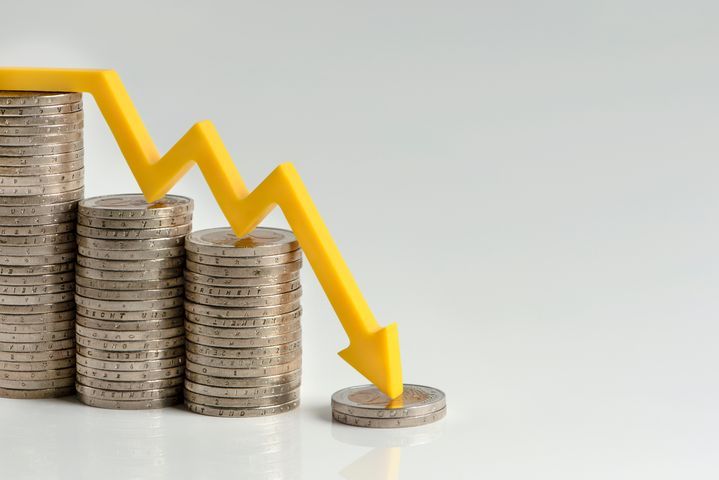During the COVID-19 pandemic, student loan borrowers were widely granted accommodations. As a result, payment obligations for federal student loans were widely suspended. The pause in payments is set to end in late August 2023, unless the pause is extended again.
Many borrowers struggled with student loans prior to the pandemic, with millions falling significantly behind in their payments and defaulting. The Department of Education introduced a new program designed to aid these defaulted student loan borrowers called “Fresh Start.”
The following Frequently Asked Questions (FAQs) are meant to inform student loan borrowers who monitor their credit health and may see their scores impacted as a result of this program.
While VantageScore has completed an analysis based on its VantageScore 3.0 and 4.0 models, results are meant to be interpreted directionally. Credit score models take a variety of different factors associated with student loans into consideration including the number of accounts, balances, payment history, amounts paid down, among others. Additionally, these factors may impact borrowers differently based on their individual credit profile.
Moreover, there are many different credit score models available and not all models will incorporate these reporting changes in a similar fashion. Therefore, how the Department of Education’s (ED) program impacts each student loan borrower’s individual credit score will likely vary.
What is this program?
The Department of Education has launched the Fresh Start program to enable borrowers who have defaulted on certain student loans to “re-enter current repayment status and have other federal student aid benefits and protections restored that will increase their long-term repayment success.”
Who is eligible for these programs?
According to the Department of Education borrowers with the following student loans are eligible:
- Defaulted William D. Ford Federal Direct Loan (Direct Loan) Program loans
- Defaulted Federal Family Education Loan (FFEL) Program loans (both ED-held and commercial-held)
- Defaulted ED-held Perkins Loans
Commercial-held FFEL Program loans that defaulted after March 13, 2020, through the duration of the payment pause, will be returned to current standing through ED’s action to expand COVID-19 flexibilities. Because these loans will be returned to current standing, they are not eligible for Fresh Start benefits.
NOTE: VantageScore strongly encourages borrowers to consult the Department of Education’s website for additional information.
Is this program going to help me?
A significant benefit of the Fresh Start program relates to changes in reporting of the defaulted student loan to the credit bureaus, including the opportunity for the student loan borrowers to enroll in repayment plans, which will allow immediate rehabilitation of their debt, erasing the prior defaulted loan from their credit record and replacing it with a new loan.
If borrowers take full advantage of the Fresh Start program benefits offered by the Department of Education, they will likely experience positive changes to their VantageScore credit score over time and to their financial health.
Are there different effects of this program on credit scores in the short term versus longer term?
Since reporting of student loans that are in default will be modified, there may be some volatility in credit scores in the short term, where some borrowers may see declines in their VantageScore credit scores, depending on their credit profiles and the credit scoring model used. However, the longer-term effects on VantageScore credit scores are expected to be positive if borrowers take advantage of the program benefits, including accessing repayment plans to rehabilitate their loans and avoid falling behind in any required payments.
Will my score be impacted when Fresh Start is launched and if so, how?
Student loan borrowers may see changes in their VantageScore credit scores upon entering the Fresh Start program. The score changes will differ from one credit scoring model to another because each model may factor information about student loans differently. The score impacts will also differ from consumer to consumer based on their credit profile.
With the VantageScore 3.0 model, most borrowers impacted by the launch of the Fresh Start program will experience a score increase, averaging more than 30 points. However, some borrowers are expected to experience an initial decline in their score, averaging about 15 points. With the VantageScore 4.0 model, a larger percentage of borrowers may see a negative change averaging less than 30 points.
Borrowers are expected to see their credit score increase over time, if they take full opportunity of the program benefits, including repayment plans, and they keep up with their payments.
Why does my score change as a result of Fresh Start?
Credit scores respond to modifications of the information included in the consumer’s credit report. As part of the Fresh Start program, there will be some changes to how student loans in default are reported in the credit report and they will affect how credit scoring models use the information related to these loans, and how they affect certain score factors such as the borrower’s active balances and balance-to-loan ratios, in addition to the loan’s status. These changes may lead to shifts in VantageScore credit scores depending on the consumer’s credit profile.
What happens if I don’t take any action after being enrolled in the Fresh Start program?
During the 12 months of the Fresh Start program, the previously defaulted student loan accounts will be reported as current/paid as agreed, regardless of whether the borrower makes a payment.
This impacts VantageScore credit scores positively over time for most student loan borrowers. Compared with the initial impact of the Fresh Start program, a larger percentage of borrowers will experience a score improvement, averaging 20 to 30 points. Some borrowers’ scores may continue to remain below where they were prior to entering the Fresh Start program, by an average of 15 to 30 points, depending on the VantageScore model and depending on how the related information is incorporated in their score calculation.
How will participating in repayment plans offered through the Fresh Start program affect my score?
Student loan borrowers taking advantage of the repayment plans are expected to see a significant score increase when they opt-in. Their score may increase by an average of 30 to 50 points, depending on whether VantageScore 3.0 or VantageScore 4.0 is used.
Borrowers who are able to make payments should see continued and increasing positive impacts on their VantageScore credit scores over time, likely averaging 60 to 70 points, depending on the model version, at the end of 12 months. However, the positive effects will be more muted when repayment plans, such as Income-Driven Repayment plans, do not require payments to be made or do not lead to reductions in outstanding balances. If, on the other hand, borrowers re-default on the account(s) rehabilitated through this program, they will experience significant drops in their VantageScore credit scores, averaging 50 to 60 points, depending on the model, due to this recent negative payment information on their credit files.
Why are the score impacts different based on the specific model?
There are many different credit score models available and not all models will incorporate these reporting changes similarly. Because models use different data and interpret data differently, and because the information in each credit file is unique to an individual borrower’s behaviors, score impacts will be different for each borrower.
What happens if I can’t pay my student loan after opting into a repayment plan?
Student loan borrowers who re-default on the account(s) rehabilitated through the program will experience significant drops in their VantageScore credit scores, averaging 50 to 60 points, depending on the model, due to this recent negative payment information on their credit files.
Where can I get more information about how to improve my credit health?
For borrowers who continue to struggle with their student loan payments despite these programs, VantageScore offers a deep library of educational resources to help them re-build their credit health.



